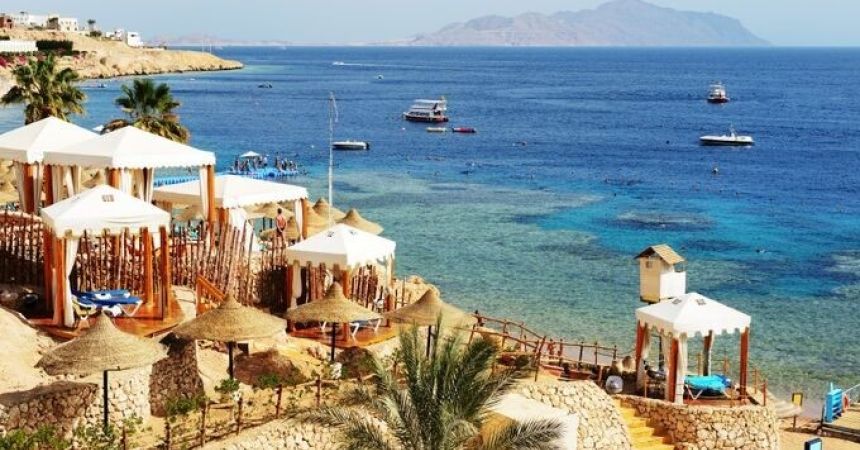
Currency Used in Egypt – Money Tips for Travelers
When traveling to Egypt, understanding the local currency and financial practices is crucial for a smooth and enjoyable trip. This guide delves deeply into everything you need to know about the currency used in Egypt, including its history, practical tips for handling money, and how to navigate financial transactions while exploring this captivating country.
Introduction to Egyptian Currency
1.1. The Egyptian Pound (EGP)
The official currency of Egypt is the Egyptian Pound, abbreviated as EGP and often denoted by the symbol "£" or "LE" (Livre Égyptienne). The pound is subdivided into 100 piastres (also referred to as qirsh or girsh). The Egyptian Pound has been in use since 1820 and has undergone several changes and reforms over the years.
- ISO Code: EGP
- Symbol: £, LE
- Subdivision: 1 pound = 100 piastres
1.2. Historical Overview
The Egyptian Pound was introduced during the reign of Muhammad Ali Pasha, the Ottoman governor of Egypt, as part of a broader monetary reform. The currency has evolved through various phases, including periods of high inflation and economic reform. Today, it is managed by the Central Bank of Egypt, which oversees its stability and value.
Banknotes and Coins
2.1. Banknotes
Egyptian banknotes come in several denominations, each featuring distinct designs and security features. Here is a breakdown of the current banknotes:
- 1 Pound: Typically a greenish-blue color, featuring images related to Egyptian agriculture.
- 5 Pounds: Generally blue, featuring the famous Al-Azhar Mosque in Cairo.
- 10 Pounds: Often a red color, depicting the Abu Simbel temples.
- 20 Pounds: Yellowish in color, with a design featuring the Sphinx and the Great Pyramid of Giza.
- 50 Pounds: Greenish-yellow, showing the Temple of Karnak.
- 100 Pounds: Red, featuring the Philae Temple and the statue of Ramses II.
- 200 Pounds: Dark blue, featuring the Great Sphinx and the Pyramids of Giza.
2.2. Coins
Coins are used for smaller transactions and are available in several denominations:
- 1 Piastre: The smallest denomination, rarely used in everyday transactions.
- 5 Piastres: Commonly used for small purchases.
- 10 Piastres: Slightly larger, used for everyday items.
- 25 Piastres: Often used for more significant small transactions.
- 50 Piastres: Typically used for moderately priced items.
- 1 Pound: Frequently used in transactions alongside banknotes.
Handling Money in Egypt
3.1. Currency Exchange
Exchanging money is an essential part of traveling. Here are some tips for handling currency exchange in Egypt:
- Airport and Hotel Exchange: Currency exchange services are available at airports and hotels. While convenient, the rates may not be the most favorable. It’s advisable to exchange a small amount of money upon arrival for immediate expenses.
- Banks and Exchange Offices: For better rates, visit local banks or official exchange offices. They offer competitive exchange rates and are generally more reliable. Major cities like Cairo, Alexandria, and Luxor have numerous exchange facilities.
- ATMs: ATMs are widely available and offer a convenient way to withdraw cash. Look for ATMs that display the logos of international networks such as Visa, MasterCard, or Cirrus. Be mindful of fees associated with international withdrawals.
3.2. Payment Methods
In Egypt, various payment methods are accepted:
- Cash: Cash is widely used for most transactions, especially in local markets, small shops, and rural areas. Always carry some cash as not all places accept card payments.
- Credit and Debit Cards: Major credit and debit cards (Visa, MasterCard) are accepted in larger hotels, restaurants, and shops. However, it’s a good idea to carry cash for smaller establishments and tipping.
- Mobile Payments: Mobile payment systems are becoming more popular in Egypt. Some businesses accept payments through apps like Fawry and other local mobile banking services.
3.3. Tipping
Tipping is customary in Egypt and is generally expected for good service. Here are some guidelines:
- Restaurants and Cafes: A tip of 10-15% of the bill is appreciated.
- Hotel Staff: Tip porters, housekeeping, and concierge staff around 10-20 EGP per service.
- Taxi Drivers: It’s common to round up the fare or give a small extra amount as a tip.
- Guides and Drivers: If you’re on a tour, tipping guides and drivers around 50-100 EGP per day is standard.
4.2. Currency Exchange Tips
- Avoid Street Vendors: Be cautious of street vendors offering currency exchange services, as they may not offer competitive rates or may engage in fraudulent activities.
- Check Exchange Rates: Always compare exchange rates before making any transactions to ensure you’re getting a fair deal.
- Keep Receipts: When exchanging currency, keep your receipts in case you need to reconvert any leftover currency at the end of your Tour to Egypt.

Understanding Egyptian Economic Conditions
5.1. Inflation and Currency Value
Egypt has experienced fluctuations in inflation and currency value over the years. The Central Bank of Egypt manages monetary policy to stabilize the pound. Stay informed about current economic conditions as they can impact exchange rates and pricing during your trip.
5.2. Economic Reforms
Egypt has implemented various economic reforms aimed at improving its financial stability and growth. These reforms may affect currency value, prices, and overall economic conditions.
Safety and Security
6.1. Avoiding Counterfeit Currency
To avoid counterfeit currency:
- Use Reputable Sources: Exchange money at banks, official exchange offices, or ATMs rather than from street vendors.
- Examine Banknotes: Familiarize yourself with the security features of Egyptian banknotes. Look for watermarks, security threads, and color-shifting inks.
- Report Suspicious Notes: If you receive a counterfeit note, report it to local authorities or banks immediately.
6.2. Protecting Your Money
- Use Secure Methods: Keep your money and valuables in a secure place, such as a hotel safe or a money belt.
- Avoid Flashing Cash: Be discreet when handling cash to avoid attracting unwanted attention.
Traveling to Remote Areas
7.1. Cash Necessities
In remote areas and smaller towns, cash is often the preferred method of payment. Ensure you have sufficient cash before traveling to these regions, as ATMs and card facilities may be limited.
7.2. Local Currency
In some remote areas, the local currency might be accepted with less scrutiny. Be prepared to exchange or use local money if needed.
Luxury and Adventure Combined: Egypt Holidays
Navigating currency and financial transactions in Egypt is an essential aspect of travel planning. Understanding the Egyptian Pound, knowing where and how to exchange money, and being aware of local payment practices can enhance your travel experience. With careful preparation and attention to financial details, you can fully enjoy the wonders of Egypt without any monetary hassles.



